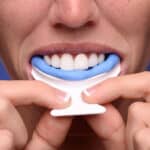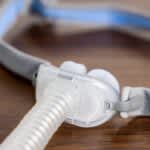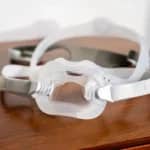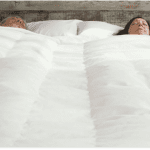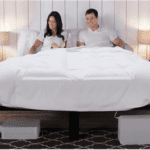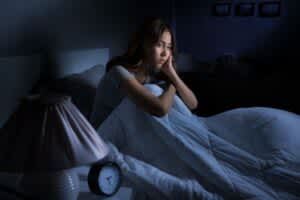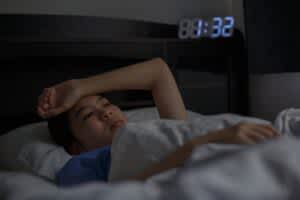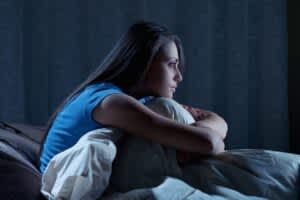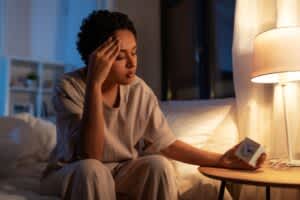Nearly half of all people have trouble sleeping, and more than a third of adults do not get the recommended seven hours of sleep per night. Whether you’ve endured one restless night or you consistently have difficulty falling or staying asleep, you might be wondering why you can’t sleep.
Many factors influence the amount of sleep you get and the quality of your sleep. Habits and routines, emotions, health conditions, medications, and even what you eat and drink can affect your sleep.
Whatever the cause, sleep loss can have serious consequences. A single night of bad sleep can negatively affect your mood, energy levels, and ability to function mentally and physically. Sleep loss can also impair your immune system, compromising your ability to fight off illness and disease.
Fortunately, there’s a lot you can do to address sleep difficulties. We’ll take a closer look at the possible reasons why you can’t sleep and how to address the root causes of sleep loss so that you can fall asleep and stay asleep.
Top 5 Tips to Sleep Through the Night

- 1 Limit exercise and naps to earlier in the day.
- 2 Drink less fluids before bedtime.
- 3 Time light exposure according to your sleep-wake schedule.
- 4 Optimize the bedroom to be cool, dark, and quiet.
- 5 Avoid alcohol, caffeine, and large meals before bed.
While waking up in the middle of the night is not generally a cause for concern, talk to your doctor if you experience frequent sleep interruptions.
Change in Sleep Schedule
Changes in sleep schedules and irregular bedtimes can disrupt the circadian rhythms that govern the sleep-wake cycle, leading to poor sleep quality.
Many factors can cause inconsistencies in sleep schedules, including:
- Job demands, particularly for shift workers
- Schoolwork
- Social activities
- Jet lag caused by traveling across time zones
If you think disruptions to your sleep schedule might be compromising your ability to sleep, you may benefit from resetting your sleep schedule.
Room Temperature
Room temperature affects body temperature, so if your sleep environment is too cold or too hot, you may have trouble sleeping.
People generally use clothing and bedding to warm up in sleep environments that are too cold. A hot sleep environment, on the other hand, may be harder to cope with and can lead to wakefulness and poor sleep quality.
You may sleep best in a cooler room temperature around 65 to 68 degrees Fahrenheit.

Screen Time Before Bed
The vast majority of Americans watch TV or spend time on a cell phone, computer, or tablet before going to bed. If you are one of them, “screen time” could be a reason why you are having trouble sleeping.
Screens from electronic devices emit blue light waves, which can cause problems with falling asleep and staying asleep. This is because blue light slows down the production of melatonin, a sleep hormone that the body releases in darkness.
Some electronic devices offer blue light filters. Additionally, blue light glasses which may reduce exposure to blue light, have been growing in popularity. But experts say it is best to avoid screen time altogether at least 30 minutes before going to bed and to keep electronics out of the bedroom.
Stress
When the events and conditions of your life cause stress, it can be hard to get a good night’s sleep. Sometimes stress is the result of an isolated event, such as a work deadline or a traffic jam. Ongoing circumstances, such as relationship problems or financial troubles, can also be significant sources of long-term stress.
The human body responds to stress by releasing chemicals that increase alertness, elevate the heart rate, and cause muscle tension. These automatic responses can be beneficial in moments when you need to react quickly to avoid danger or solve a problem. Unfortunately, they can also make it hard to sleep.
While a single stressful event may lead to a frustrating night of tossing and turning, chronic stress can have serious health consequences. If not managed properly, chronic stress may lead to insomnia. Reach out to your health care provider if stress has interfered with your sleep for two or more weeks.
A Mental Health Condition
If you have a mental health condition such as anxiety or depression, there is a good chance you have trouble sleeping at least some of the time.
Sleeplessness can be both a cause and a consequence of mental health conditions. For example, people with long-term sleep difficulties have increased chances of developing an anxiety disorder. But research also shows that anxiety causes insomnia.
A number of treatment options are available to people who experience sleep problems alongside anxiety, depression, and other mental health conditions. These include therapy, relaxation techniques, and medication. Talk to a medical or mental health professional about what options might be right for you.
An Undiagnosed Sleep Disorder
In some cases, sleeping issues are due to the presence of an underlying sleep disorder. People with sleep disorders generally have trouble falling or staying asleep, which can lead to daytime sleepiness, distress, and difficulty functioning.
There are about 60 different sleep disorders. The following are some of the most common.
- Insomnia: Insomnia is characterized by sleeplessness, nonrestorative sleep, and daytime fatigue. People with insomnia typically struggle to fall asleep and stay asleep, and they often wake up too early.
- Sleep Apnea: Sleep apnea causes loud snoring and breathing pauses for brief periods during sleep, which can lower oxygen levels and disrupt sleep quality.
- Restless Legs Syndrome (RLS): RLS causes uncomfortable and sometimes painful sensations in the legs, accompanied by a strong urge to move them. Often most intense at night, RLS frequently prevents sleep.
- Circadian Rhythm Disorders: These disorders cause the internal clock that governs the sleep-wake cycle to become out of sync, which leads to sleepiness and wakefulness at the wrong times of day.
Sleep disorders often go undiagnosed and therefore untreated. This may be, in part, because physicians rarely bring up the topic of sleep with their patients. Sleep disorders are also sometimes mistaken for other medical and mental health conditions, such as epilepsy or depression.
If you experience persistent sleeping problems or any of the symptoms described above, make sure to discuss the possibility of a sleep disorder with your doctor.
Do You Struggle With Sleep?
If you’re having trouble falling or staying asleep, it could be an underlying issue like sleep apnea. Answer three questions to understand if you should be concerned.
Alcohol Consumption
Drinking alcohol is typically seen as a way to relax, but too much of it can negatively affect sleep, especially when consumed close to bedtime. While alcohol may initially help you fall asleep, once it wears off, you are more likely to wake up during the night and have poor quality sleep. It can also induce snoring and make sleep apnea worse
If you drink alcohol, make sure to stop drinking several hours before bedtime to limit its negative effects on sleep.
Caffeine Intake
Consuming caffeine can interfere with sleep, increasing the time it takes to fall asleep and reducing overall sleep quality. The most commonly used stimulant in the world, caffeine increases alertness and energy.
Caffeine is a common ingredient found in many products, including:
- Coffee and tea
- Soft drinks and energy drinks
- Chocolate
- Some pain relievers and cold medicines
- Pills, gums, and snacks designed to boost energy
Although the effects of caffeine peak around 30 minutes after consumption, it stays in the body for much longer. The amount of time caffeine stays in the body varies depending on weight, age, and other factors like pregnancy and even altitude. But the average healthy adult may feel the effects of caffeine for four to six hours after consuming it.
This means that caffeine consumed long before bedtime still has the potential to disrupt sleep. And for many people, losing out on sleep causes sleepiness in the morning, leading them to consume even more caffeine, which causes more sleep loss. Regularly consuming too much caffeine can lead to insomnia.
To avoid sleep difficulties and other health problems linked with caffeine, you should consume no more than 250 milligrams of caffeine per day (about four or five cups of coffee), though depending on your sensitivity, you may need to drink less in order to sleep well. Additionally, you should avoid caffeine for at least eight hours before bedtime.
Dietary Choices
The food you eat and your mealtime habits can also be a source of sleep difficulties. Some of the dietary choices and behaviors that can negatively affect quality or quantity of sleep include:
- Eating non-nutritious foods (e.g., foods that are high in sugar or saturated fats)
- Consuming meals too quickly
- Eating too much food
- Skipping meals or eating at irregular times
- Consuming spicy foods
- Eating foods that trigger intolerances or allergies
If your diet doesn’t provide the nutrients your body needs, it can interfere with the production of hormones involved in the sleep-wake cycle. Research has shown that diets low in certain vitamins and minerals—such as calcium, magnesium, and Vitamin D—can lead to short sleep duration.
Experts recommend a fruit and vegetable-based diet, high in vitamins and minerals, to support healthy sleep and to discourage health problems that may negatively impact sleep.
An Inactive Lifestyle
People who get little to no exercise are more likely to have trouble falling asleep than people who exercise regularly.
The relationship between inactivity and sleep difficulties is complex. Some behaviors associated with inactive lifestyles, such as spending time in front of a TV or electronic devices, can negatively affect sleep. Additionally, people who experience sleep difficulties may be less inclined to exercise because they feel fatigued.
Moreover, a number of heath conditions, such as sleep apnea and depression, are linked with both inactivity and sleep disturbances. The good news is that exercise can improve sleep, even in people with underlying conditions.
Make sure to consult with your doctor before beginning a new exercise regimen. Additionally, you may want to avoid vigorous exercise at night, as intense physical activity in the hour before bedtime can negatively affect sleep.
What to Do When You Can't Sleep
Whatever the reason for your sleep difficulties, everyone can benefit from embracing healthy sleep habits, also called sleep hygiene. Set yourself up for a restful night’s sleep by following the tips below.
- Be Consistent: Choose a bedtime and a time to wake up, and stick to them—and make sure to budget enough time to sleep. The average adult should get at least seven hours of sleep.
- Set Up Your Bedroom for Success: Ensure a quiet and comfortable sleeping environment by removing electronics, turning off all lights, and keeping the room cool.
- Avoid Screen Time Before Bed: Establish a bedtime routine that keeps you away from cell phones, tablets, computers, and television. Ideally, you should avoid screens for at least an hour before going to sleep.
- Relax: Engage in calming activities, such as listening to soothing sounds, taking a bath, or reading a book.
- Watch What You Eat and Drink: Avoid caffeine and alcohol at least two hours before bedtime.
- Exercise: Get regular exercise during the day but not within four hours of going to bed.
- Get Some Sun: Getting 15 minutes of sunlight exposure first thing in the morning can help you feel awake and will also prepare your body to feel sleepy at night.
If you take steps to improve your sleep hygiene and still struggle with falling asleep or staying asleep, talk to your doctor.
References
The Sleep Doctor Forum: Real Experiences, Real Connections
Continue the discussion on the Sleep Doctor Forum. Connect with experts and fellow forum members on CPAP, sleep apnea, and all things sleep. A priceless resource that’s free to join.



